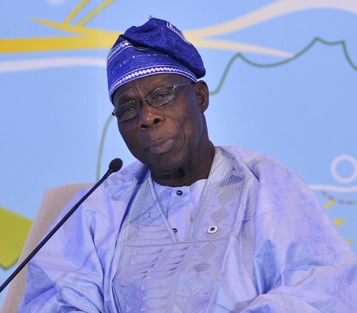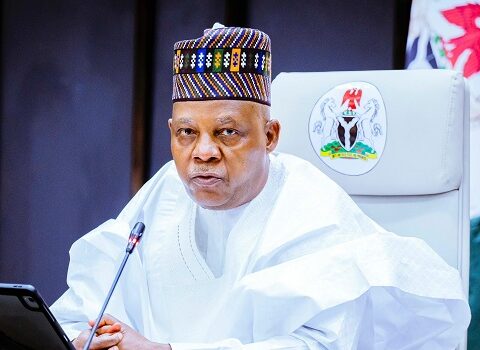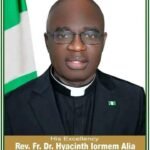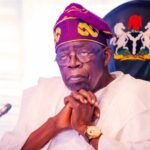Professor Humphrey Nwosu was a renowned Nigerian academic and political figure best known for his role as the Chairman of Nigeria’s National Electoral Commission (NEC), now the Independent National Electoral Commission (INEC), during one of the most pivotal periods in the nation’s political history—the 1993 general elections. Nwosu’s tenure as the electoral commission head and his handling of the June 12, 1993 presidential election remain defining moments in Nigeria’s democratic evolution.
Early Life and Education
Humphrey Nwosu was born in 1941 in Ajalli, Orumba North Local Government Area, Anambra State, Nigeria. He pursued a career in academia, studying political science. Nwosu earned a bachelor’s degree in political science from the University of Nigeria, Nsukka, and later obtained a Ph.D. in political science from the University of California, Berkeley, in the United States. His academic training equipped him with a deep understanding of political systems, public administration, and governance, which would later influence his approach to electoral management in Nigeria.
Academic Career
Before entering public service, Nwosu was a distinguished academic and professor of political science. He taught at the University of Nigeria, Nsukka, where he contributed significantly to political science scholarship and public policy research. His academic background and involvement in political studies made him a natural choice when the opportunity arose for him to lead Nigeria’s electoral body.
Appointment as Chairman of NEC
In 1989, General Ibrahim Babangida, the then-military president of Nigeria, appointed Humphrey Nwosu as the Chairman of the National Electoral Commission (NEC). His appointment came during Nigeria’s political transition from military rule to civilian governance, a process that Babangida initiated through his “transition to democracy” program.
Nwosu’s task was to oversee and conduct credible elections that would restore Nigeria to democratic rule. His leadership of the electoral body came at a time when the country was deeply divided along ethnic and political lines, and the stakes were high for ensuring a transparent electoral process.
June 12, 1993 Election and the Annulment
The most notable and controversial aspect of Nwosu’s tenure as NEC Chairman was the June 12, 1993 presidential election, widely regarded as the freest and fairest election in Nigeria’s history. Nwosu introduced several reforms, including the Open Ballot System (Option A4), which was designed to enhance transparency and reduce electoral fraud.
The election saw Chief Moshood Kashimawo Olawale Abiola (MKO Abiola) of the Social Democratic Party (SDP) running against Alhaji Bashir Tofa of the National Republican Convention (NRC). Abiola was widely believed to have won the election, but before the final results could be officially announced, the military government led by General Babangida annulled the election on June 23, 1993.
The annulment of the June 12 election plunged Nigeria into political turmoil and led to widespread protests, civil unrest, and calls for the restoration of Abiola’s mandate. Nwosu, who was at the center of this controversy, was unable to complete the announcement of the final results before the annulment order was given. The annulment effectively ended Nwosu’s time as NEC Chairman, and the military government later dissolved the commission.
Contributions and Legacy
Despite the annulment of the June 12, 1993 election, Professor Humphrey Nwosu’s efforts were often seen as a turning point in Nigeria’s electoral history. His reforms, particularly the introduction of the Open Ballot System, were widely praised for their attempt to eliminate election rigging and manipulation.
Though the military government ultimately undermined his work, Nwosu could be remembered as a principled figure who sought to conduct free, fair, and credible elections. His tenure as NEC Chairman marked a critical moment in Nigeria’s democratic journey, and he was often credited with laying the groundwork for later electoral reforms.
In 2008, Professor Nwosu published a book titled “Laying the Foundation for Nigeria’s Democracy: My Account of June 12, 1993 Presidential Election and its Annulment,” in which he provided an insider’s account of the election and the events that led to its annulment. The book offered new insights into the pressures and challenges he faced as NEC Chairman and remains an important work for understanding Nigeria’s electoral history.
Later Years
Following his exit from the public scene after the annulment, Professor Nwosu returned to private life. He continued his work in academia and political consultancy. His views on electoral reforms and democratic governance are still respected, and he remains a symbol of Nigeria’s struggle for democratic transition.
Recognition and Influence
Nwosu’s role in the June 12 election and his broader contribution to Nigeria’s democratic development have earned him recognition both at home and abroad. Though the annulment overshadowed his achievements, his work as an electoral reformer continues to influence Nigeria’s electoral system. Many later electoral commissions have adopted and built upon the reforms he introduced during his tenure.
Nwosu’s advocacy for free and fair elections and transparent governance remains relevant in contemporary Nigeria, especially as the country continues to grapple with issues of electoral credibility and democratic consolidation.
As he bows out of this world, the story of a man that stood firm defending the tenets of democracy would continue to linger in the national memory.



























